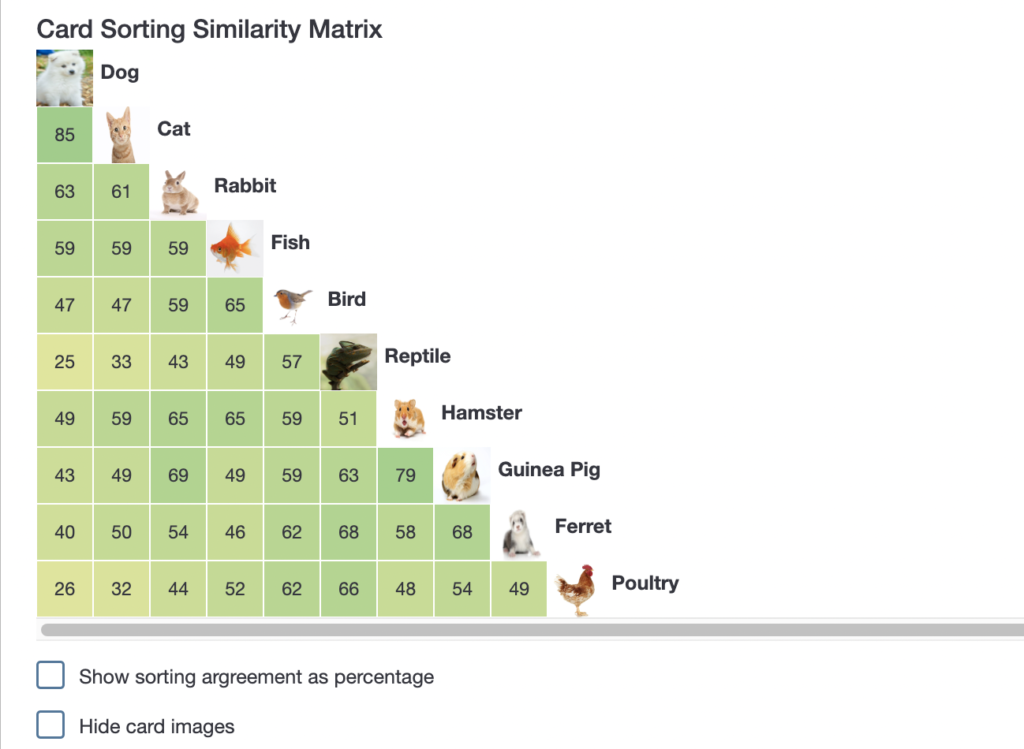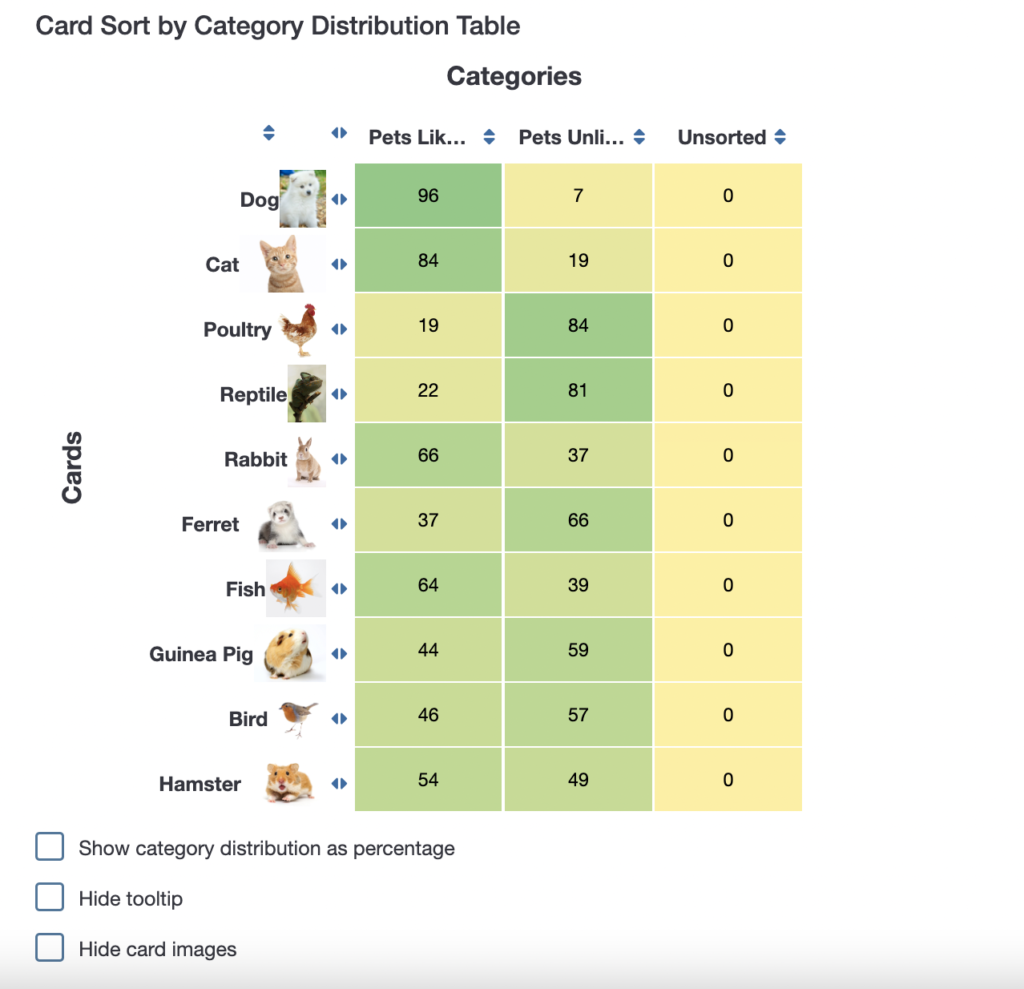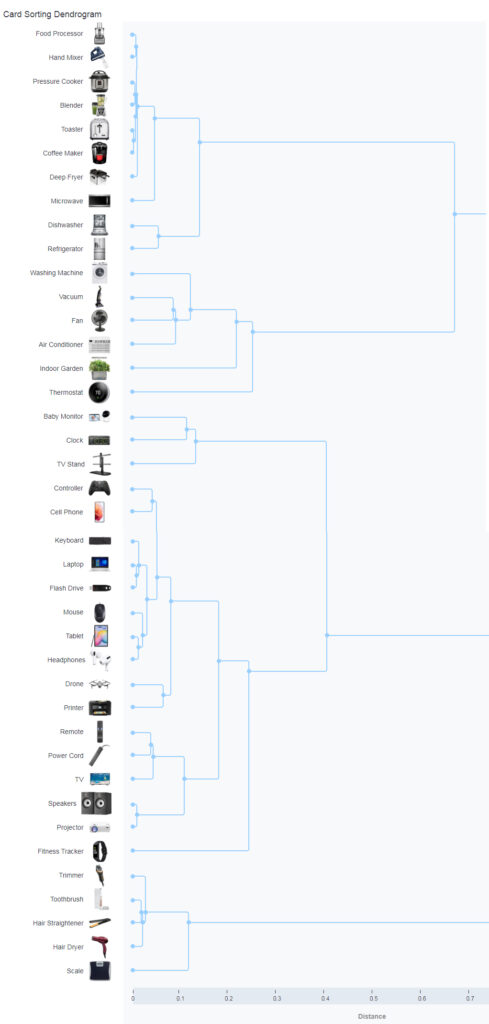Card Sorting

THE METHOD
Card sorting involves a representative set of participants sorting individual items (product names or website content, for example) into groups and often labeling these groups.
Card sorting is useful for understanding how participants group items (their similarity) and what they call the groups the items are sorted in.
Card sorting can be used to better understand how participants see similarities in
- Products in an online store
- Functions in software menus
- Information on websites
There are two types of card sorts:
Open Sort: Users are asked to sort items into a group and make up their own groups and give the groups a name.
Closed Sort: Users sort items into previously defined category names.
MeasuringU provides full services support for each phase of a card sorting study.
PLANNING
- Refining research questions, hypotheses, and metrics. We work with the product teams to identify the right method (open or closed sort) and the right number and type of cards to have participants sort.
- Picking the type and number of cards, writing the labels, and recommending pre- and post-study questions.
- Hosting the study in an unmoderated testing environment using our custom testing platform or physical cards.
- Recommending the right sample size. There isn’t a one-size-fits all number; instead the right number is based on the level of precision needed around the proportion of cards in each category. Most card sorts we conduct have between 50-150 participants, which provides a margin of error around 7-9%. Sample sizes as small as 10-15[pdf] have been shown to provide reasonable results too.
Recruitment
MeasuringU can manage and recruit qualified participants. We assist in developing screeners, scheduling, and managing participant honorariums and communication.
Analysis
A card sort provides both metrics and visual representations of the clusters participants sort items into. The most common output include
- Dendrograms that visually depict the groups of categories.
- Common group names (for open sorts).
- Similarity matrixes.
typical engagement price:
$19,000 – $30,000typical duration:
2-4 weeks


